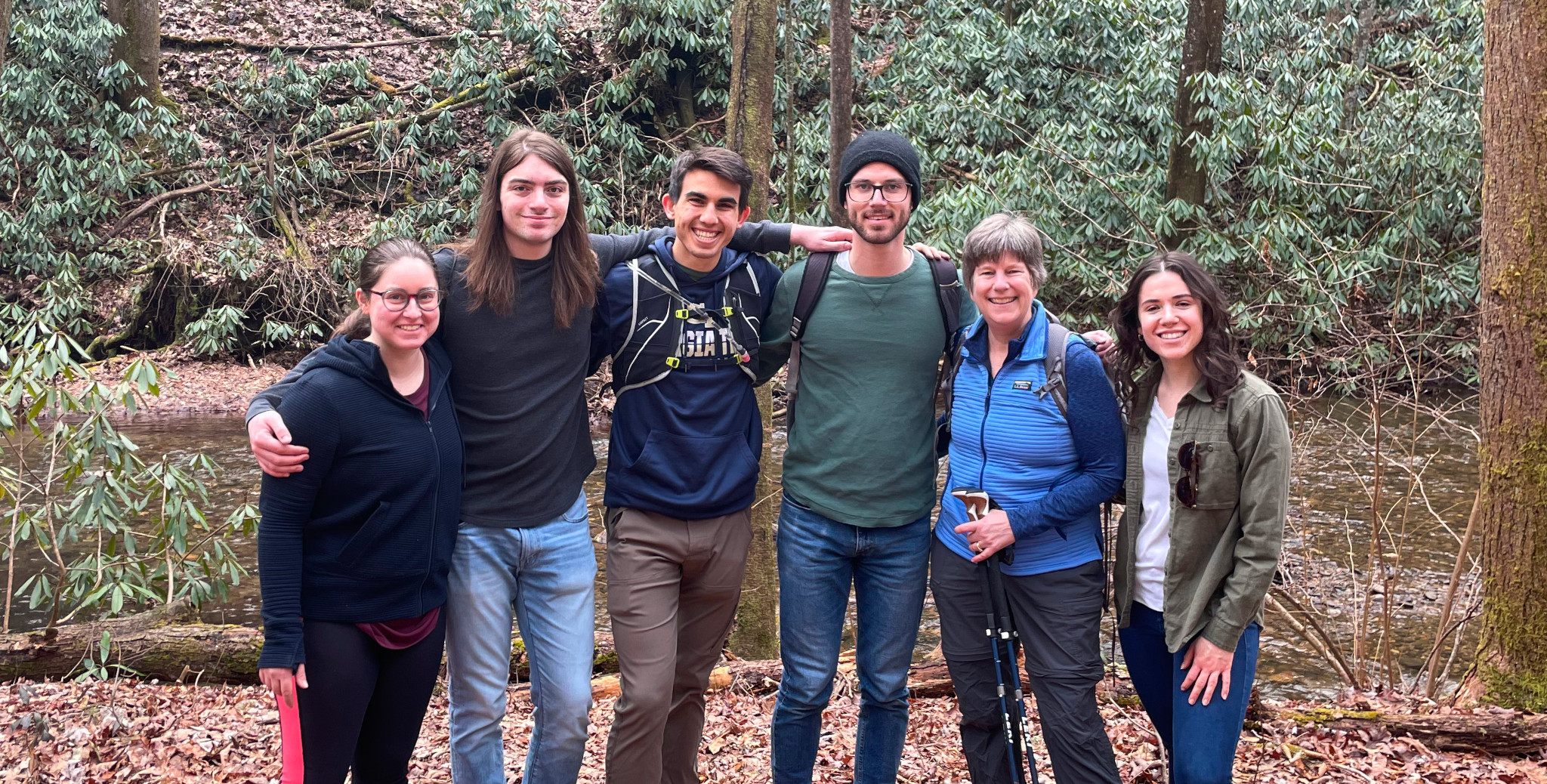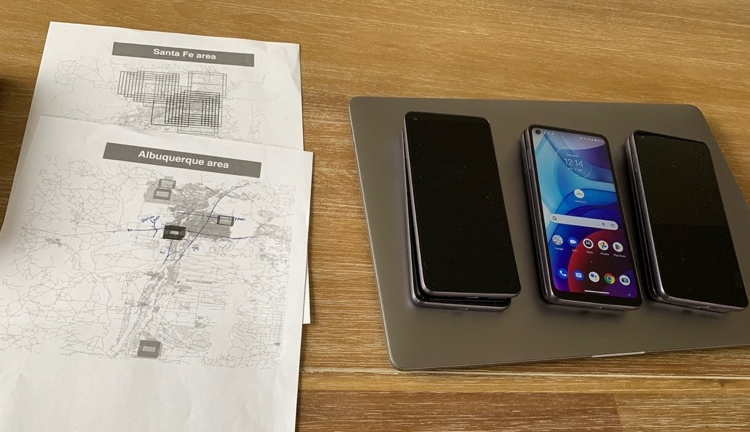Computing & Society Lab

The Georgia Tech Computing & Society Lab does research at the intersection of computer networking and computing for social good.
When we aren’t busy working, we love to get outdoors and go hiking or camping.
The lab is led by Dr. Ellen Zegura.
Get Involved
If you’re interested in joining or collaborating with the lab, send an email to the lab director, Ellen Zegura, at ewz@cc.gatech.edu.
Recent Publications
- Morgan Vigil-Hayes, Md Nazmul Hossain, Alexander K Elliott, Elizabeth M. Belding, and Ellen Zegura. 2022. LoRaX: Repurposing LoRa as a Low Data Rate Messaging System to Extend Internet Boundaries. In ACM SIGCAS/SIGCHI Conference on Computing and Sustainable Societies (COMPASS) (COMPASS '22). Association for Computing Machinery, New York, NY, USA, 195–213.
- Beatriz Palacios Abad, Elizabeth Belding, Morgan Vigil-Hayes, and Ellen Zegura. 2022. Note: Towards Community-Empowered Network Data Action. In ACM SIGCAS/SIGCHI Conference on Computing and Sustainable Societies (COMPASS) (COMPASS '22). Association for Computing Machinery, New York, NY, USA, 585–588.
- Luísa Nazareno, Ellen Zegura, Cathy Yang Liu; Changes in Mobile Broadband Infrastructure in Georgia During the COVID−19 Pandemic. Journal of Information Policy 30 December 2022; 12 321–352.
Recent Blog Posts
 One piece of the CellWatch suite is a mobile broadband measurement app that measures the availability and quality of cell service. We’re developing CellWatch because mobile broadband access in rural and indigenous areas in the United States is insufficient and more measurement is needed to understand the extent and quality of mobile access. To test out the capabilities of an alpha version of the CellWatch app, we went to New Mexico to take some measurements around Albuquerque and Santa Fe.
One piece of the CellWatch suite is a mobile broadband measurement app that measures the availability and quality of cell service. We’re developing CellWatch because mobile broadband access in rural and indigenous areas in the United States is insufficient and more measurement is needed to understand the extent and quality of mobile access. To test out the capabilities of an alpha version of the CellWatch app, we went to New Mexico to take some measurements around Albuquerque and Santa Fe. Recently, the U.S. Federal Communications Commission (FCC) established a process by which consumers can demonstrate that, contrary to what their carrier claims, they don’t have adequate cell service in a specific geographical area. This whole process is rather complicated, though, and it’s primarily explained in official FCC documents. This post aims to serve as an overview of the process for people who don’t feel like combing through 100-page government publications.
Recently, the U.S. Federal Communications Commission (FCC) established a process by which consumers can demonstrate that, contrary to what their carrier claims, they don’t have adequate cell service in a specific geographical area. This whole process is rather complicated, though, and it’s primarily explained in official FCC documents. This post aims to serve as an overview of the process for people who don’t feel like combing through 100-page government publications.
